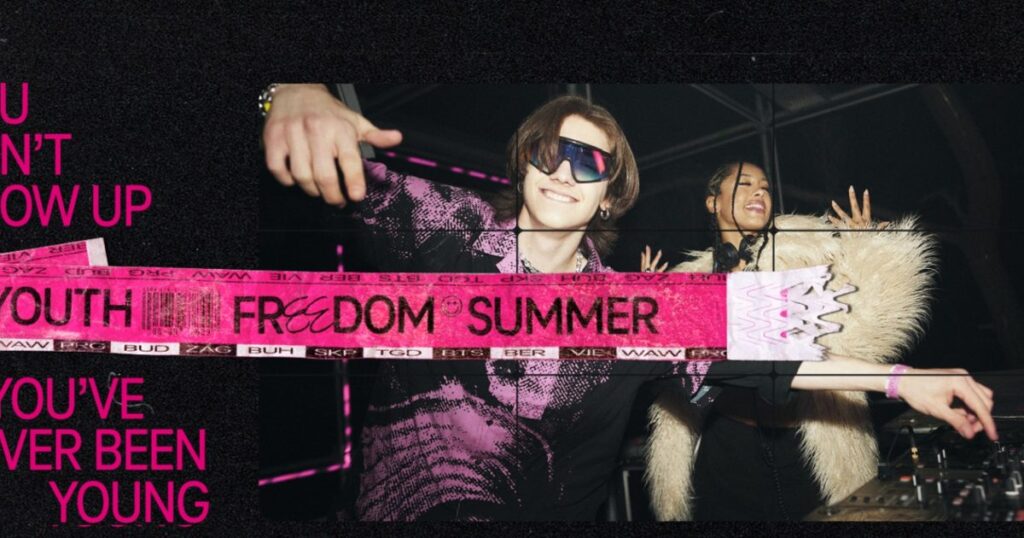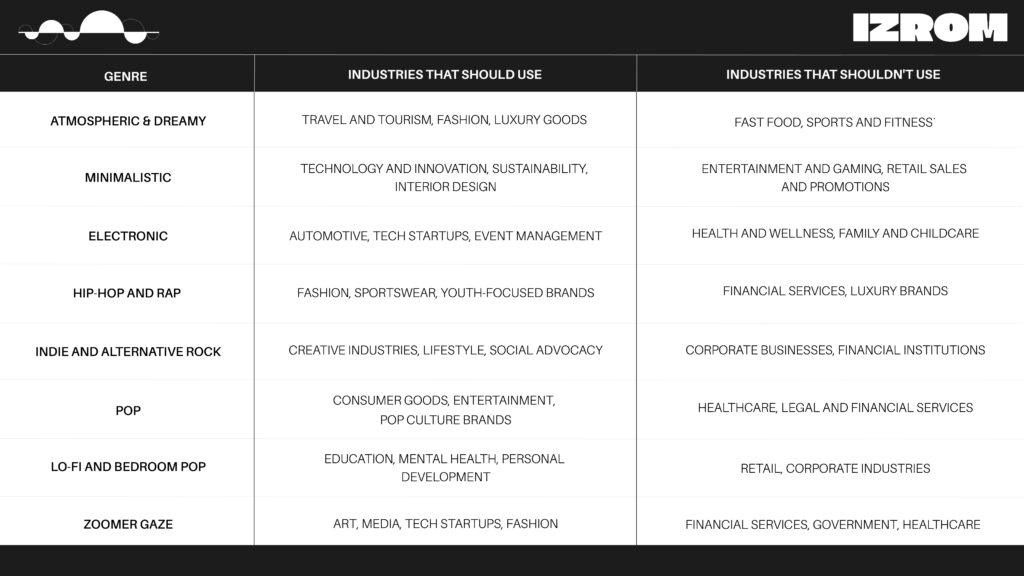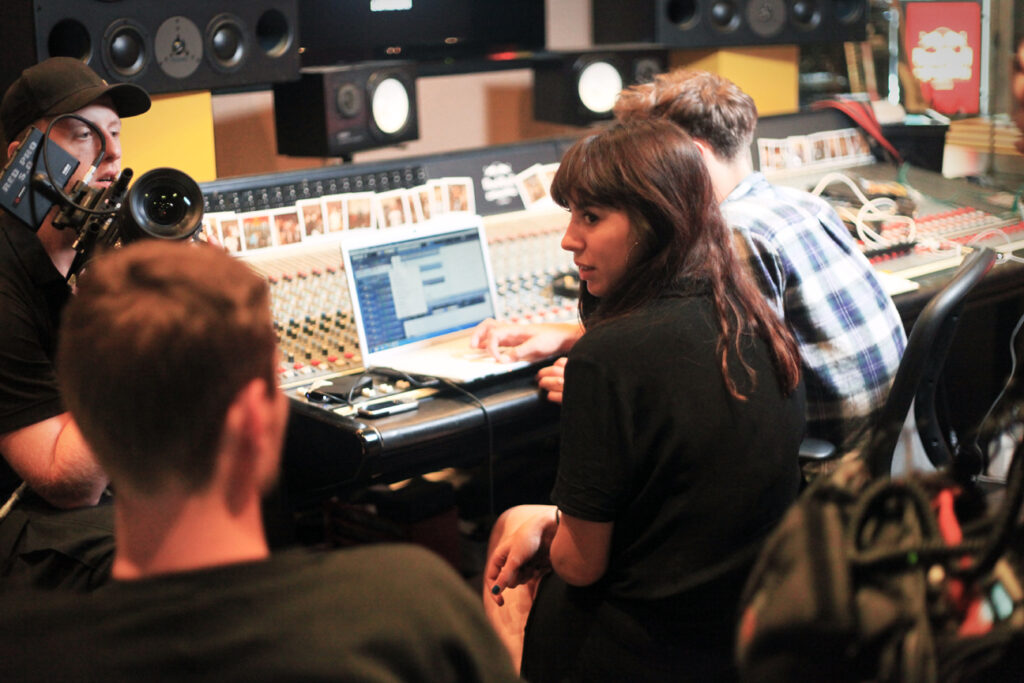In today’s fast-paced digital world, brands constantly seek fresh ways to connect with Generation Z, the demographic born between the mid-1990s and early 2010s. Gen Z is highly influenced by music, making it one of the most powerful tools for brands to communicate with this group. But what type of music should brands use to convince and influence Gen Z in their marketing campaigns? In this article, we’ll dive into the musical genres, strategies, and emotional connections that brands can leverage to capture Gen Z’s attention and inspire action.
Why Music is Crucial for Convincing Gen Z
Music is more than just background noise for Gen Z: it’s a form of identity and self-expression. This generation uses music to connect with their peers, define their moods, and even align with social movements. Brands that successfully integrate music into their campaigns can build deeper emotional connections, leading to stronger engagement, loyalty, and sales. But the key lies in choosing the right music that resonates with this audience’s unique tastes and cultural values.
Understanding Gen Z’s Musical Preferences
To convince Gen Z through music, brands must first understand their eclectic and evolving musical preferences. This generation enjoys a wide range of musical genres, which offers brands a variety of options to suit their campaign goals. Below are some of the key genres that resonate with this audience:
Hip-Hop and Rap: A Cultural and Social Powerhouse
Hip-hop and rap dominate Gen Z’s playlists, with 40% identifying it as their favourite genre. The raw, authentic lyrics and beats make this genre highly influential in shaping their identity. Artists like Travis Scott and Cardi B aren’t just musicians—they’re cultural icons whose values align with the social consciousness of Gen Z. Brands that integrate hip-hop into their campaigns can tap into this influence to build trust and credibility.
The caveat is that most brands cannot afford to synch a Travis Scott song (which is worth several hundreds of thousands if not millions of dollars) and it is unrealistic to aim to create a similar track without a significant production budget.
It also needs to be balanced with the main characteristic that defines Gen Z: authenticity. Not every brand should aspire to make hip-hop the main component of their sonic identity because hip-hop may not be associated with that brand (luxury, cosmetics, furnishing, travel…).
Go to the end of this article if you want to see our summary on musical genres that you should use depending on your industry.
Zoomer Gaze: A Futuristic Blend of Sounds
Zoomer Gaze is a modern twist taken from the 80s shoegaze (Sonic Youth, My Bloody Valentine) which blends dreamy atmospherics with elements of grunge and hyperpop. Think of shoegaze as the evolution of psychedelic rock that features more electronic elements and a lean towards analogue production. Today’s Zoomer Gaze genre appeals to Gen Z’s love because these tunes are filled with emotions and have a powerful introspective vibe. Brands targeting a more niche, forward-thinking audience can incorporate this genre to signal innovation and creativity.

Lo-fi and Bedroom Pop: Intimacy and Authenticity
Lo-fi and bedroom pop reflect Gen Z’s desire for more intimate, DIY-style music. These genres have gained popularity over the years with the rise of indie artists publishing their tracks on platforms like SoundCloud, Bandcamp and YouTube where artists create raw, unfiltered tracks from their bedrooms. Because of one’s ability to self-identify with these DIY producers, the artists from this genre usually have a strong community and a highly engaged fan base. For brands looking to convey authenticity, using lo-fi music can help connect on a more personal level, making the brand feel relatable and genuine.
Atmospheric and Dreamy Sounds: Setting the Tone for Emotional Connection
Gen Z craves music that transports them to different mental and emotional spaces. Atmospheric and dreamy soundscapes, often found in indie and electronic music, offer a sense of escapism that resonates deeply with this generation. Artists like Tame Impala or Lorde use airy, ethereal sound designs that appeal to Gen Z’s desire for music that feels both expansive and intimate. Brands that incorporate this type of music can evoke powerful emotions, helping to create campaigns that feel personal and deeply connected to the listener.
Electronic Music: Innovation and Immersion
The electronic music world continues to be a dominant force for Gen Z music. The genre’s ability to blend synthetic sounds with organic emotions makes it a perfect choice for brands aiming to engage Gen Z’s tech-savvy, futuristic sensibilities. The upbeat tempo of house music aligns well with the fast-paced but very visually driven digital campaigns and can be a good fit for more subtle, downtempo electronic tracks. Overall, this big family of genres offers versatility in campaign design, allowing brands to craft experiences that feel cutting-edge, dynamic, energetic and, most of all: fun.
How Brands Can Use Music to Convince Gen Z
Remix Nostalgic Hits to Stir Emotion
You might have guessed it from the first few genres we were discussing, the emotional power of nostalgia resonates a lot with our audience. Although they weren’t old enough to enjoy the ’90s, Gen Z has a strong appreciation for music from the early 2000s. Brands can remix popular songs from this era to create a nostalgic yet modern vibe that appeals to their younger audience.
For example, Wendy’s cleverly remixed T-Pain’s 2007 hit “Buy U a Drank” into “Buy U a Frosty.” This playful, nostalgic campaign was both relatable and refreshing for Gen Z, who found it both humorous and musically appealing. By tapping into past music and remixing it with a fresh twist, brands can evoke strong emotional responses that inspire action.
Pop: Catchy Tunes with Mass Appeal
Pop music, while mainstream, holds a special place in Gen Z’s hearts thanks to artists like Billie Eilish and Olivia Rodrigo. What makes this genre effective in campaigns is its catchy, relatable nature. Pop songs that feature relatable themes like empowerment, love, or resilience are more likely to stick in the minds of Gen Z, making them ideal for brands aiming to create memorable, wide-reaching campaigns. Once again, using music from artists who have millions of followers can be extremely expensive and lengthy to obtain since you’ll need to contractualise with all rights holders before even considering using it.
How Brands Can Use Music to Convince Gen Z
Now that we’ve covered the types of music Gen Z enjoys, let’s look at how brands can use music effectively to convince them to engage, take action, and ultimately become loyal customers.
1. Make Music a Bigger Component of Your Brand
To truly resonate with Gen Z, brands need to go beyond using music as background noise and make it a core part of their identity and develop what has been called a sonic identity. Music is integral to Gen Z’s sense of self-expression, so brands that use it meaningfully will stand out. If you use cheap music, you’ll be perceived similarly. Your music should reflect who you are as a brand.
2. Offer Exclusive Music Experiences
Gen Z places a high value on experiences, often prioritizing them over material goods. Brands can use music to offer exclusive experiences, like access to private concerts or virtual music events. These experiences create a sense of exclusivity and community, making Gen Z feel like they’re part of something unique.
Deutsche Telekom’s “Summer of Joy, Youth, Freedom” campaign is a perfect example of this strategy. By offering free access to music festivals and exclusive gigs across Europe, they gave Gen Z experiences they would remember and associate with the brand long-term.

3. Work with Izrom: Music Supervision Tailored to Gen Z
To successfully engage Gen Z through music, brands need to ensure their soundtracks resonate with this generation’s values and tastes. Izrom, a leading music supervision company, excels at curating synch-friendly music and creating custom soundtracks that speak directly to Gen Z. By understanding the cultural nuances, musical diversity, and emotional depth Gen Z craves, Izrom helps brands develop campaigns that leave a lasting impression. Whether it’s a trendy indie track or a fresh take on a pop hit, Izrom ensures that the music aligns with the brand’s message and Gen Z’s unique identity.
4. Collaborate with Emerging Gen Z Artists
Authenticity is a cornerstone of Gen Z’s values. By partnering with emerging artists from their generation, brands can inject authenticity into their campaigns. These collaborations not only highlight the brand’s support for up-and-coming talent but also position the brand as being in touch with Gen Z’s culture.
For example, Quannnic, an 18-year-old artist whose song “Life Imitates Life” went viral on TikTok, exemplifies the kind of artist Gen Z connects with. Brands that feature such artists in campaigns can foster a sense of authenticity, making their messaging more convincing.
5. Use Music to Tell an Emotional Story
One of the most powerful ways to convince Gen Z is through storytelling, and music is the perfect tool to enhance that narrative. Brands can use music to evoke specific emotions—whether it’s excitement, nostalgia, or empowerment—that align with their campaign message.
For instance, a brand promoting environmental sustainability might use calming, nature-inspired music to reinforce its message, while a tech-focused brand could use futuristic, upbeat tracks to emphasize innovation.
Bonus: Genres that you should use or ban depending on your industry

Conclusion: Building a Soundtrack to Convince Gen Z
Music plays a vital role in shaping Gen Z’s experiences, emotions, and purchasing decisions. To convince Gen Z, brands need to go beyond simply selecting popular tracks—they need to create emotional connections, offer unique experiences, and align their music choices with the values Gen Z holds dear. By using the right combination of genres, emerging trends, and authentic collaborations, brands can create campaigns that resonate deeply with Gen Z and inspire action.
Ultimately, the key to convincing Gen Z through music is authenticity. Whether it’s through remixing nostalgic hits, collaborating with young artists, or offering exclusive musical experiences, brands that stay in tune with Gen Z’s preferences will hit the right notes and build lasting connections.
FAQs
1. What type of music convinces Gen Z the most?
Genres like hip-hop, zoomer gaze, atmospheric so, and indie rock resonate strongly with Gen Z, but the key to convincing them lies in using music that aligns with their values and the brand’s message.
2. How can nostalgia help brands convince Gen Z?
Nostalgic music taps into the collective memory of older generations while offering Gen Z a retro, yet relatable vibe. Remixing past hits can evoke strong emotional connections, making campaigns more engaging.
3. Why are music experiences important for Gen Z?
Gen Z values experiences over material goods, and exclusive music events give them a sense of community and belonging, enhancing their loyalty to the brand.
4. How does Izrom help brands create music that resonates with Gen Z?
Izrom specializes in music supervision that aligns with Gen Z’s tastes, ensuring brands choose authentic and culturally relevant music to this generation’s unique preferences.

